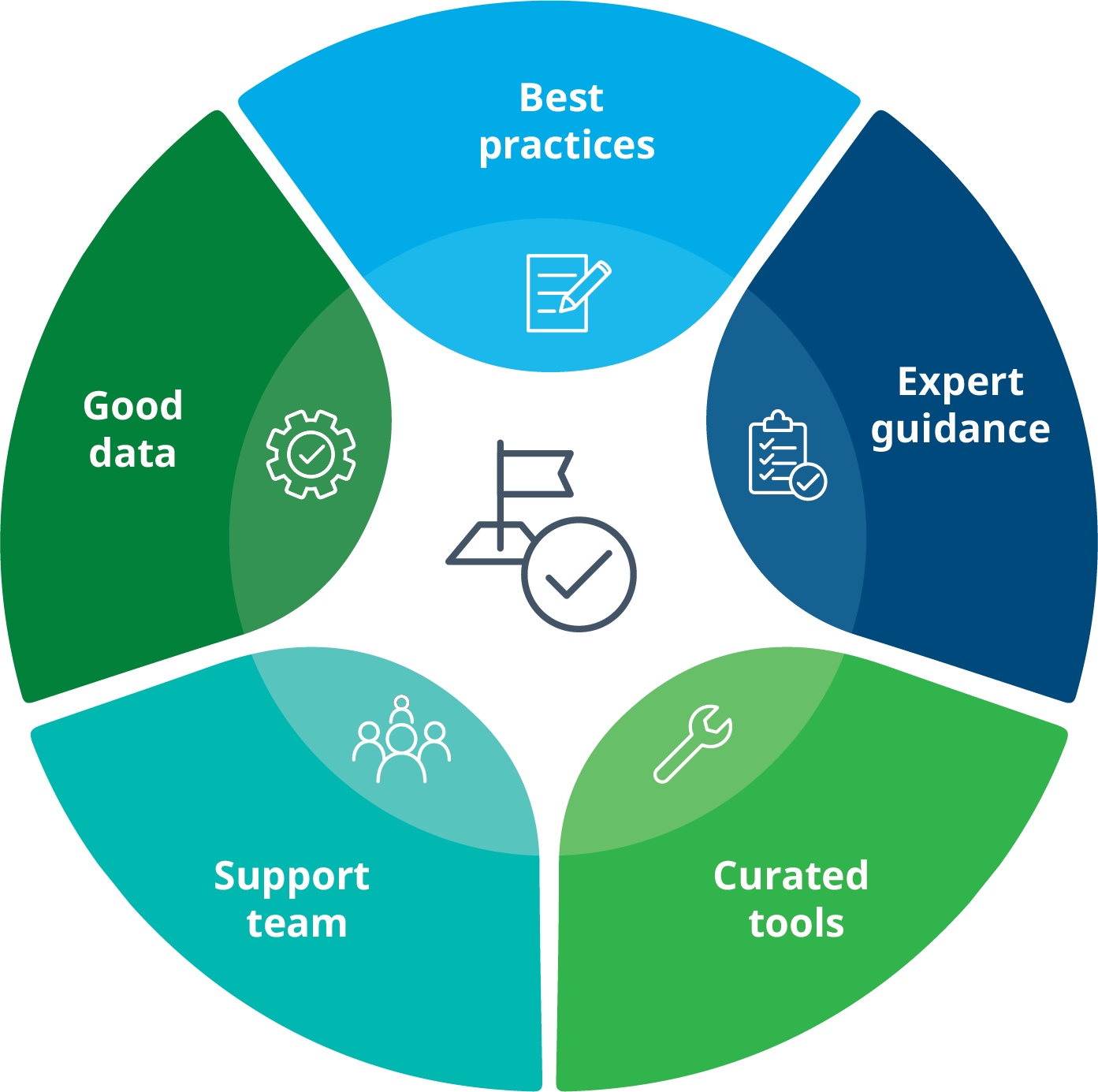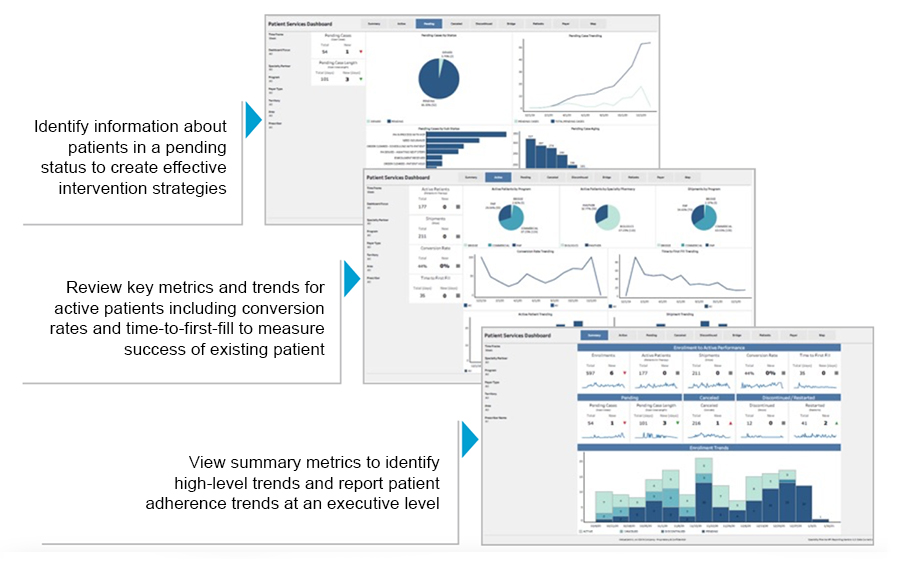















- Locations
- United States
- US Blogs
- Intelligent Interventions: Guiding Rare Disease Patients Along the Road of Adherence
Picture a hiker setting off to climb Mount Everest. Everest is one of the most difficult peaks to summit. Only a small percentage of hikers take this journey, and it brings unique emotional, physical, and financial challenges along the path to reaching the summit.
The patient journeys of people living with one of about 7,000 known rare diseases are like the path to the summit of Mt. Everest. While one in ten people have a rare disease, the number of people battling each one is relatively small. They each have unique emotional, physical, and financial challenges at every turn along the path to reaching good health.
In 1983, the Orphan Drug Act came into effect, encouraging the development of drugs to treat rare diseases and conditions. From 1983 to 2015, the FDA granted 3,647 orphan drug designations and 554 orphan drug approvals. As rare disease drugs are increasing, with their typically high prices, payer barriers to reimbursement are increasing.
If payers don’t effectively reimburse for drugs that treat rare diseases, and if patients can’t access or adhere to their therapies, there are negative health consequences for the entire population. That’s why access and adherence to the therapy are so crucial.
Obstacles to patient adherence and the negative outcomes of nonadherence
Despite all the research and development that’s happening in the rare disease space, patients still need to access, start, and stay on therapy to achieve positive health outcomes. And yet, there are multiple obstacles to patient adherence, such as:
- Fear of the unknown
- Side effects
- Complicated methods of treatment
- Affordability due to high out-of-pocket expenses
- Lack of reimbursement
- Frequent doctor appointments
- Lack of awareness and education about the disease and therapy
- Lack of support
- Lack of connection with other patients
- Compromised immunity
Nonadherence has some devastating outcomes for the entire population; as mentioned previously, rare diseases are not actually all that rare. Among the serious clinical consequences of nonadherence are increased risk of hospitalization, disease progression, and premature mortality. Failure to take medicines correctly and therefore derive the optimal benefits also has significant economic implications.
Even so, estimates suggest that between 20% and 30% of individuals are non-adherent to potentially curative or symptomatic treatments. And the poorest adherence rates are reported among those taking long-term medications, where a significant drop-off is observed after the first six months of therapy and patients typically take only about half their prescribed doses.
Pharma has stepped in to help combat these challenges and help rare disease patients reach the summits of their personal Mount Everests. Once positive health outcomes happen for the first time with one rare disease, repeated success is inevitable — and that’s a reason for optimism.
Increasing patient success rates in rare disease

There are five core ingredients to increase patient success rates in rare disease. These five elements deliver confidence and hope for patients on the most difficult journey of their lives.
- Best practices: A well-charted path lets patients learn from the observations and recommendations of the people who went before them.
- Expert guides: Support hubs deliver advice and encouragement to patients who are alone or overwhelmed.
- Curated tools: Tools exist for patient engagement, communication, support, adherence monitoring, training, scheduling, and community resources.
- Support team: Case managers, nurses, pharmacists, social workers, and reimbursement specialists walk alongside patients on their treatment journey.
- Data: Informed decisions and best practices lead to the design, build, and continuous improvement of all patient support services.
IQVIA, as pharma’s data expert, is a trusted partner offering curated tools and technologies that support the patient journey, that can free up pharma resources by providing visibility to the patient journey, alerting of opportunities to intervene, and automating certain interventions.
IQVIA’s Intelligent Interventions aggregates data from the moment the treatment is prescribed — on the prescriber, the drug, the pharmacy, the activities that lead to the patient starting therapy, whether reimbursement is approved or denied, and more — and reports it all back to the pharma company so it can see patient throughput in easy-to-understand dashboards. Intelligent Interventions can also apply business rules that suggest interventions for various cohorts of patients.
With Intelligent Interventions, care partners on the support team can work together to increase the probability of success.
Intelligent Interventions in action

A few Intelligent Interventions dashboards that can assist in the patient journey include:
- Patient program dashboard: Identifies opportunities and reacts to trends with payer, provider, and adherence metrics.
- Patient journey dashboard: Uses patient journey data to examine details of status progression and cycle times.
- Patient status dashboard: Reacts to patient status trends and patterns to draw insights and explore interventions.
- Free goods dashboard: Tracks metrics to manage compassionate care and continuity of care programs.
IQVIA’s vision for Intelligent Interventions is that it will increase efficiency, improve precision, and improve outcomes for patients with rare diseases. This is a growing capability that will only improve with time, increasing the chances of success on the long trek to the top of the Everest of rare disease.

Intelligent Interventions – Simplify Patient Journey Management from Access to Adherence
Execution is incredibly important for specialty and rare disease manufacturers as opportunities to impact outcomes are limited to specific patient populations. Beginning with patient access barriers to start therapy, and then addressing patient challenges to stay on therapy, accurate, insightful, and actionable data is needed to achieve best-in-class results. Learn how the Intelligent Interventions solution simplifies patient journey management from access to adherence.
Related solutions
We empower life sciences with connected intelligence, transforming data into actionable insights for smarter decisions and better patient outcomes.




